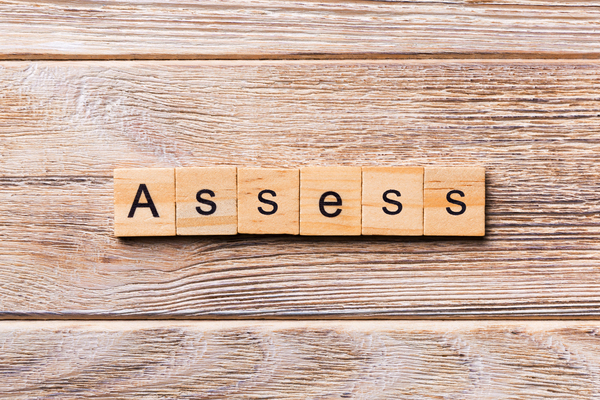THE WORLD’S #1 EXECUTIVE COACHING AND BUSINESS COACHING BLOG SINCE 2017.
Why Self-Assessment Is a Continual Process for Intelligent Leaders
June 30, 2020 | Category: Blog, Leadership Assessment
A culture of continuous improvement requires you to regularly assess yourself and your leadership abilities. How could you improve without knowing where you currently stand?
Self-awareness is at the root of self-assessment, but it is also its result. Self-aware leaders possess a keen emotional intelligence. They have a clear and undistorted view of their weaknesses and strengths and they know how they come across as leaders from the perspective of their reports and coworkers.
To comprehend the importance of continuous self-assessment, you need to be self-aware. If you regularly assess your leadership effectiveness, you develop your self-awareness. The two go hand-in-hand.
Intelligent and successful leaders are great at self-assessment.
How do self-awareness and continuous self-assessment develop your leadership abilities? How can you honestly and effectively assess yourself?
Self-aware leaders reap many benefits.
- They improve their effectiveness.
- They communicate better and thus build more meaningful relationships with their colleagues.
- They boost their emotional intelligence.
- They handle stress better.
Your self-assessment needs to be honest. You cannot allow your ego to distort it.
- Complete a self-assessment program, such as my Strategic-tactical Leadership Index.
- Try to observe yourself objectively. Intelligent leadership requires critical self-observation.
- Facilitate feedback and honest dialogue.
- Listen more and listen well.
- Admit mistakes and make amends.
Self-assessment Questionnaires
My Strategic-tactical Leadership Index (STLI) is more than a questionnaire. Beyond helping you assess your abilities and pinpoint your weaknesses, it offers you developmental strategies to address those problems.
By requiring you to honestly answer questions concerning your intelligent leadership abilities, the STLI builds your emotional intelligence, making you face the emotions such questions elicit.
Critical Self-observation
From the perspective of self-assessment, recording yourself on video and watching the recording with a critical eye is akin to sports teams watching videos of their opponents to identify their weaknesses/strengths.
Do not be afraid to confront the man in the mirror.
This way, you gain an understanding of how you carry yourself as a leader, from an outside perspective, that of the people with whom you work.
This type of exercise can also help you overcome your fears and vulnerabilities stemming from placing yourself into the center of attention.
Facilitating Feedback and Honest Dialogue
You can always ask your coworkers and reports to rate your leadership abilities through my STLI. This way, you can secure their direct feedback. You can, however, obtain such feedback daily by asking them how they see you as a leader.
Receiving peer feedback boosts communication and builds trust.
The Importance of Real Listening
One way to pick up quality feedback is to listen to your team. Real listening is about letting your reports steer the tide of the conversation. It is about empowering your team to contribute meaningfully.
By listening well, you foster an environment in which everyone feels safe to express thoughts honestly and candidly.
Admitting Mistakes and Making Amends
When you admit your mistakes, you show humility and vulnerability as a leader. That is exactly why immature leaders find it difficult to adopt this behavior.
Do not be afraid to apologize. Make it clear how you intend to make up for your mistakes. Taking responsibility for your actions is not just a sign of maturity. It is also an outstanding tool for introspection and self-assessment.
Make self-assessment part of your routine. Know where you stand as a leader at all times. Build up a network of coaching and support to unleash your true leadership potential.





